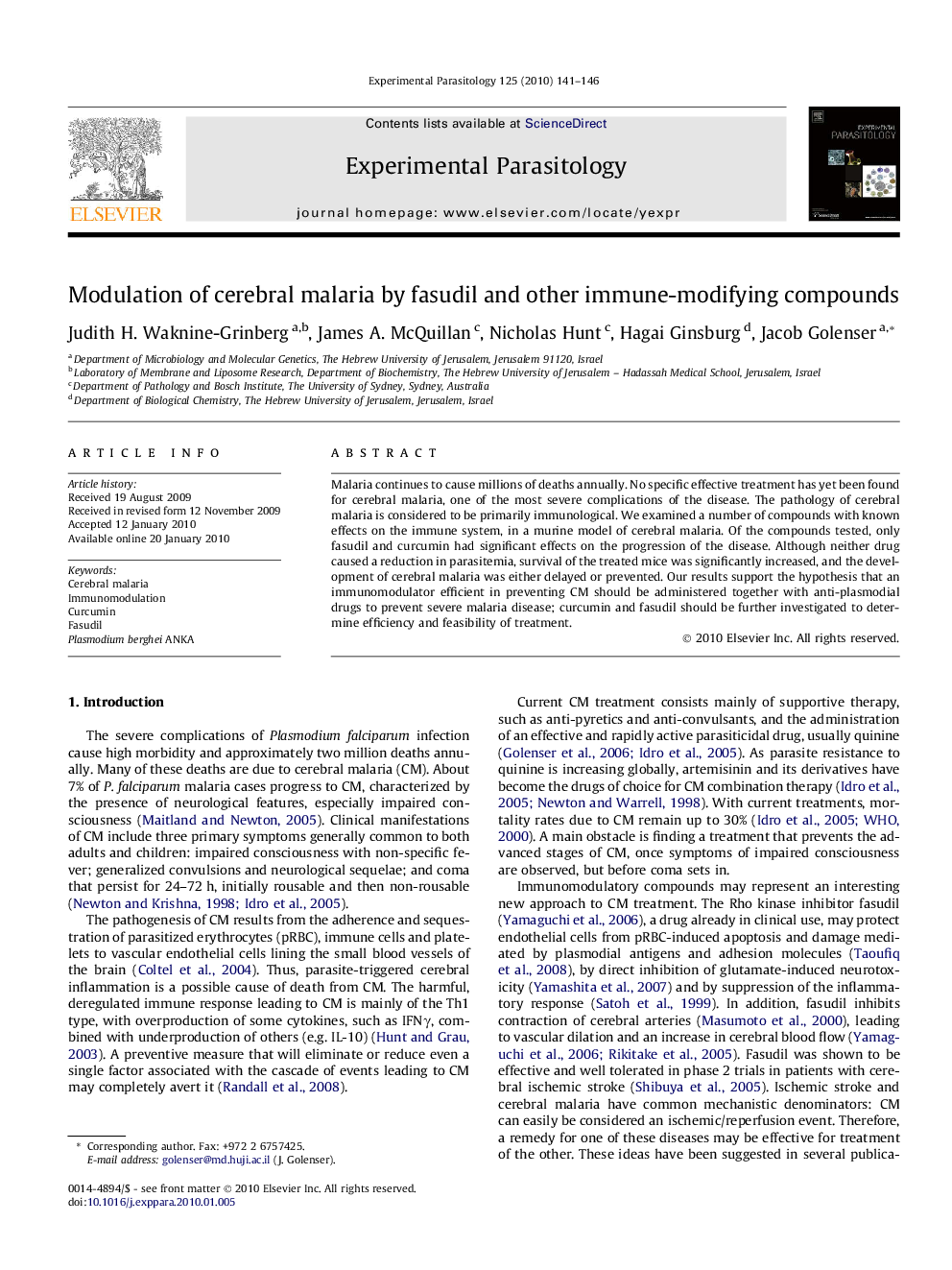| Article ID | Journal | Published Year | Pages | File Type |
|---|---|---|---|---|
| 4371380 | Experimental Parasitology | 2010 | 6 Pages |
Malaria continues to cause millions of deaths annually. No specific effective treatment has yet been found for cerebral malaria, one of the most severe complications of the disease. The pathology of cerebral malaria is considered to be primarily immunological. We examined a number of compounds with known effects on the immune system, in a murine model of cerebral malaria. Of the compounds tested, only fasudil and curcumin had significant effects on the progression of the disease. Although neither drug caused a reduction in parasitemia, survival of the treated mice was significantly increased, and the development of cerebral malaria was either delayed or prevented. Our results support the hypothesis that an immunomodulator efficient in preventing CM should be administered together with anti-plasmodial drugs to prevent severe malaria disease; curcumin and fasudil should be further investigated to determine efficiency and feasibility of treatment.
